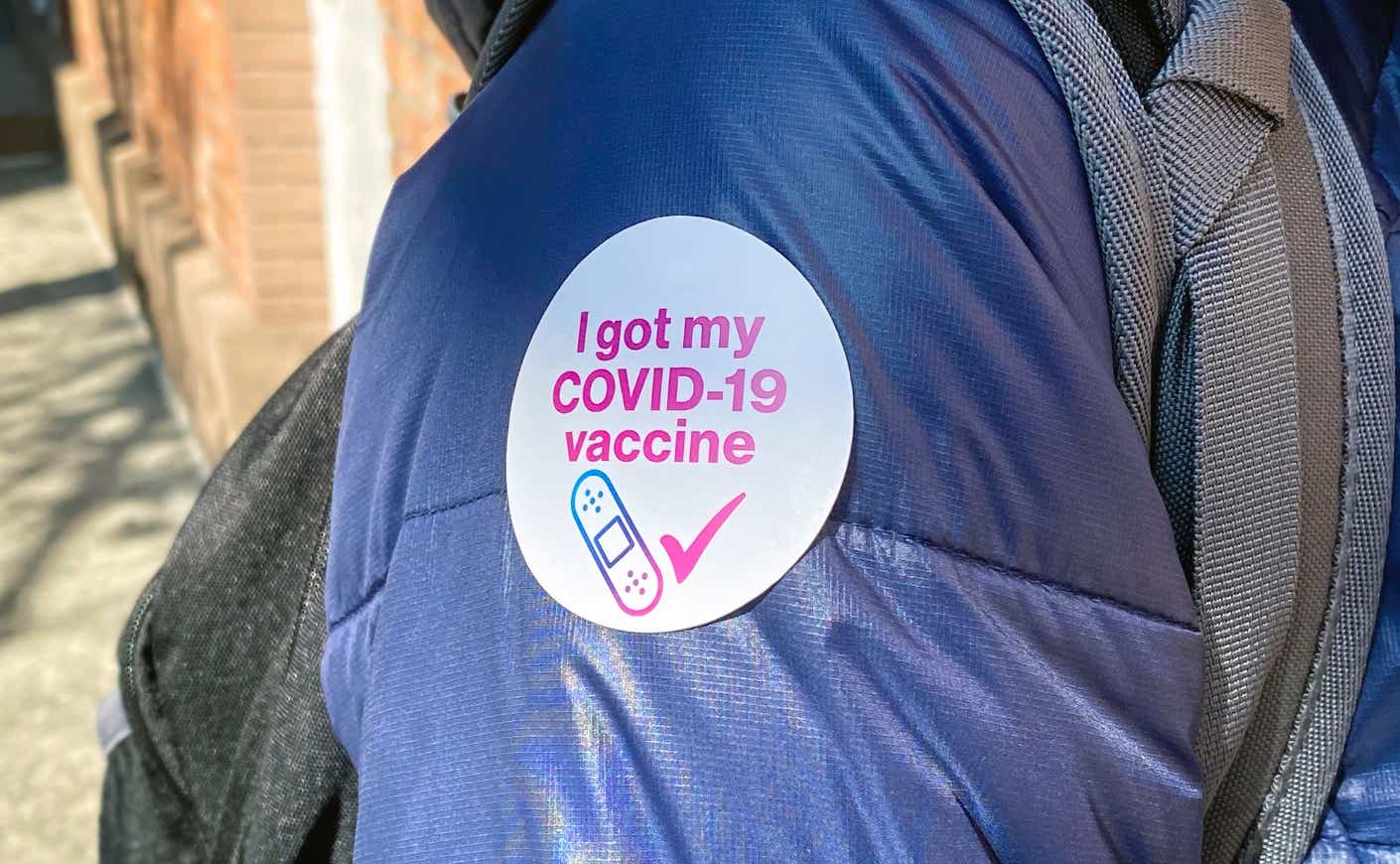If you’re planning on getting your Covid booster shot but are worried about the possible side effects, you’re not alone. As with the original doses, the third shot comes with a range of different symptoms that may leave you with another sore arm — or worse, have you tossing and turning all night due to body aches.
But you should know that these reactions are generally mild, and most importantly, temporary. Now that all adults over the age of 18 years or older are eligible, Taison Bell, MD (a critical care and infectious-disease physician at the University of Virginia) says you shouldn’t hesitate to get your booster. “We can now give the simplest advice we've ever given on vaccines," he says, "and that basically is: If you're eligible for a dose, get that dose."
Plus, FDA-approved boosters have already been found to offer substantial protection against the latest Omicron variant that's spreading fast both in the U.S. and around the world. In fact, Dr. Anthony Fauci says the current Covid-19 vaccines are 75% effective against severe infection, and there's "no need for a variant-specific booster at this time."
We talked to Dr. Bell and fellow epidemiologist Sandro Galea, MD, to weigh in on what you can expect after getting your third shot.
What are the booster shot side effects?
While these can vary depending on a number of factors like which shot you get, the Centers for Disease Control says the most common side effects after the booster shot are tiredness, headache, muscle pain, chills, fever, and nausea as well as pain, redness, and swelling at the injection site.
But whether you get a lot of symptoms or virtually none of them, you can rest assured that the vaccine is doing its job. “Studies have shown that regardless of what symptoms you have, people tend to mount a good response to the vaccine,” says Dr. Bell.
Are there any rare and serious side effects to watch out for?
While more serious side effects — such as severe allergic reactions — are rare, they can still occur, according to Boston University epidemiologist Dr. Galea.
For instance, if you or a loved one is experiencing a new chest pain, change in heart rate, or shortness of breath, the CDC recommends that you contact your doctor right away. These symptoms could potentially be signs of myocarditis or pericarditis, both of which are types of heart inflammation that have been seen mostly in young men and adolescent boys after getting the Pfizer and Moderna vaccines.
That isn’t the only rare and serious side effect. If you received the Johnson & Johnson shot, you could be at an increased risk of developing a very rare type of blood clots known as thrombosis with thrombocytopenia syndrome, which generally occurs 42 days after receiving the vaccine. On the opposite end of the spectrum, there’s what has come to be known as “Covid arm.” But Dr. Galea says this delayed allergic reaction — which usually comes in the form of a red, itchy rash — doesn't have any "serious consequences," and can be treated with topical steroids and compresses.
How long do the booster shot side effects last?
The side effects of your booster shot should subside after about 48 hours. But if you’re feeling really terrible or the symptoms aren’t getting better, you shouldn't ignore them. “If your symptoms last longer, it could indicate something else is going on and you should contact your health provider,” says Dr. Bell.
What’s the best way to relieve the side effects from booster shots?
Luckily, most booster shot side effects can be safely managed by over-the-counter medicine, such as ibuprofen or acetaminophen. Despite past concerns, Dr. Bell says you shouldn’t hesitate to take pain relievers, saying he doesn’t expect them to weaken your immune system's response to vaccines “in any significant way.”
“What's more important is that you treat your symptoms,” he advises. “You don't want to feel miserable, and the medications don't directly interact with your immune response.”
But the CDC doesn’t recommend taking pain relievers before you get your booster because it’s “not known how these medications might affect how well the vaccine works.”
How fast does the booster work?
The booster doesn’t work immediately — our experts estimate that it takes around one to two weeks for the immunity to kick in, or possibly sooner.
“With the booster, it might be a little quicker than that actually” explains Dr. Bell, "because it's not your first exposure, or your first time making those antibodies. But to be on the safe side, I'd say it kicks in at 10 days or so.”
Even with all three doses, Dr. Bell says you should still take some precautions, such as wearing your mask inside crowded indoor areas and practicing social distancing. He says mask-wearing can help prevent not only the coronavirus, but also the flu and respiratory syncytial virus (RSV), which are running rampant this time of year.
“My motto is, ‘If you can see their full face, don't be in their space,'” he tells us.









